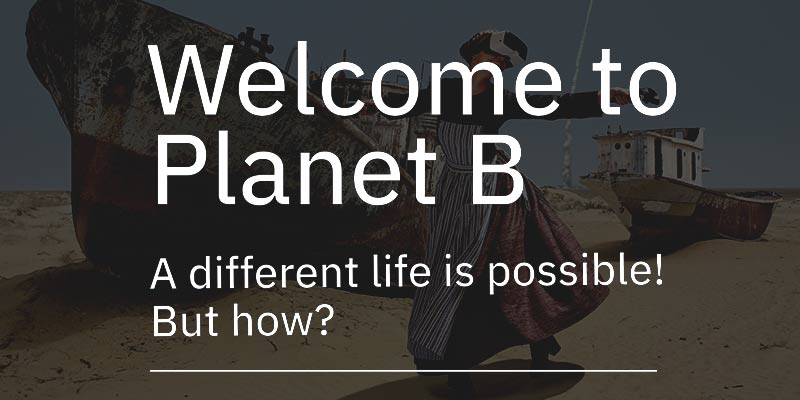Education
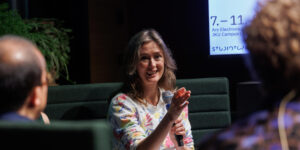
Transdisciplinary Cultures of Collaboration
Andrew Newman (AU/AT), Audrey-Flore Ngomsik (FR/BE), Kat Austen (GB/DE), Mairéad Hurley (IE), Andres Colmenares (CO/ES)
A sustainable future requires integrative, interdisciplinary and intersectoral approaches to engage with the complex interdependencies of human, non-human and more-than-human systems. Can a STEAM approach to education, one that emphasises the value of art in fostering creative and critical thinking, ensure that we have the necessary skills to face this challenge?
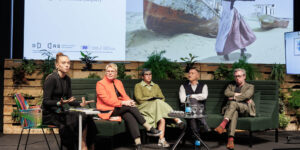
Hatching the Future of Museums
Michael John Gorman (IE), Olga Tykhonova (UA/AT), Merete Sanderhoff (DK), David Vuillaume (CH/DE), Johanna Eiramo (FI), Lauren Vargas (US/NL)
In the shadow of a climate and ecological emergency that affects all areas of social, political and economic life, the purpose and scope of action of museums must (again) be questioned. How can museums reposition themselves in an age of climate change? Can museums inspire action on planetary crises. Can museums inspire action on planetary crises, and can museal institutions be reimagined for a more diverse, intersectional publics?
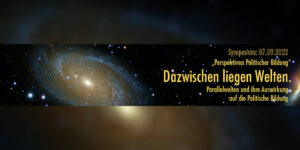
Symposium Perspektiven Politischer Bildung: Parallel worlds and their impact on Political Education
Upper Austria Teacher-Training College x Upper Austria Chamber of Labor and Ars Electronica
Political education is challenged to deal with parallel world constructions in order to counteract a destabilization of our democratic society. This year’s symposium would like to contribute to this.
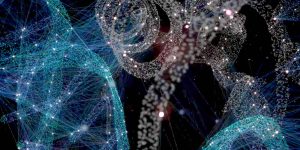
The Nature of Systems
Sebastian Pirch (AT), Norbert Unfug (AT), Christiane V. R. Hütter (AT), Jörg Menche (DE)
We live in the anthropocene, where human and natural ecosystems collide. In this interactive visualization, we explore the emergence and breakdown of complex systems from the cellular to the planetary scale. Life emerges from the interactions of biomolecules, cities from connecting people, the global society from sharing ideas. These systems can be beautiful, but also fragile.
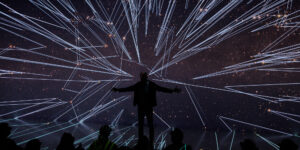
Superlative telescopes: In the desert and far behind the moon
Dr. Dietmar Hager — Stargazer Observatory (AT)
The well-known Hubble Space Telescope (HST) has reached its limits. Modern telescopes will have to work outside visible light to make new discoveries possible. The JWST (James Webb Space Telescope) is one of the successors. It will be supported by Earth-based telescopes, such as the Giant Magellan Telescope (GMT), which is currently being built in Chile. The talk reaches out from the HST to the JWST and the GMT and gives an idea of how new insights will revolutionize our understanding of space.
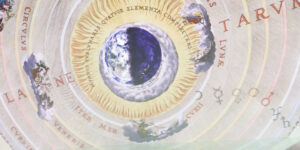
Searching for Planet B: How Astronomy Visualization and Remote Sensing Guide Us to Humanity’s Future
Dan Tell (US)
Thousands of years of increasingly precise measuring and modeling have revolutionized humanity’s understanding of the universe. We now know Earth is one of many planets, but it is uniquely habitable. The same research and techniques we use to understand these other worlds can help us understand what made Earth habitable in the first place and how we can restore and sustain this planet into the future.

Ars Electronica Futurelab: Dataspace: Russia/Ukraine.Deep Impacts
Nikkei Innovation Lab: Hiroyuki Watanabe (JP), Nobuyuki Oishi (JP), Takeshi Yamada (JP), Akihito Takei (JP), Masami Fujita (JP), Ars Electronica Futurelab: Arno Deutschbauer (AT), Manuel Dobusch (AT), Nicolas Naveau (FR, AT), Hideaki Ogawa (JP), Raphael Schaumburg-Lippe (AT), Julian Zauner (AT)
DATASPACE proposes a "newspaper of the future": Here, the Ars Electronica Futurelab and financial newspaper Nikkei's Innovation Lab demonstrate, how art and journalism can help to listen carefully to facts and think deeply rather than just consuming and reacting to news. The first project focuses on the profound impact Russia's war on Ukraine has all around the world now and in the future - inviting visitors into a sort of Zen garden of data, using the unique infrastructure of Deep Space 8K.
